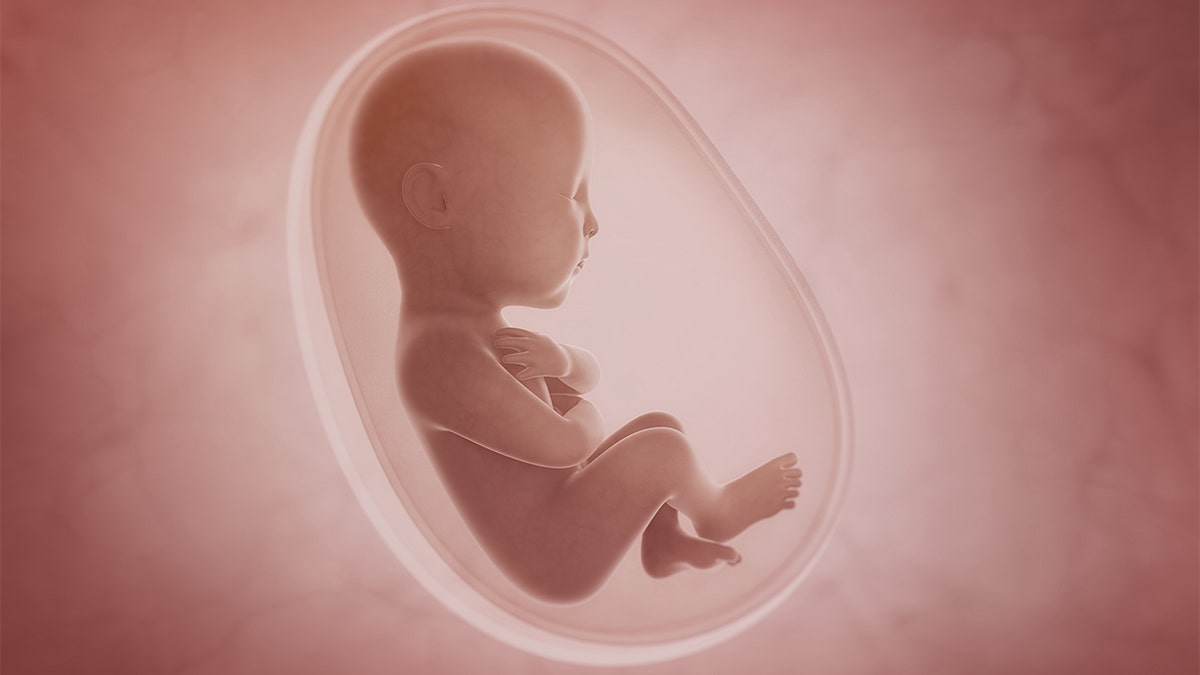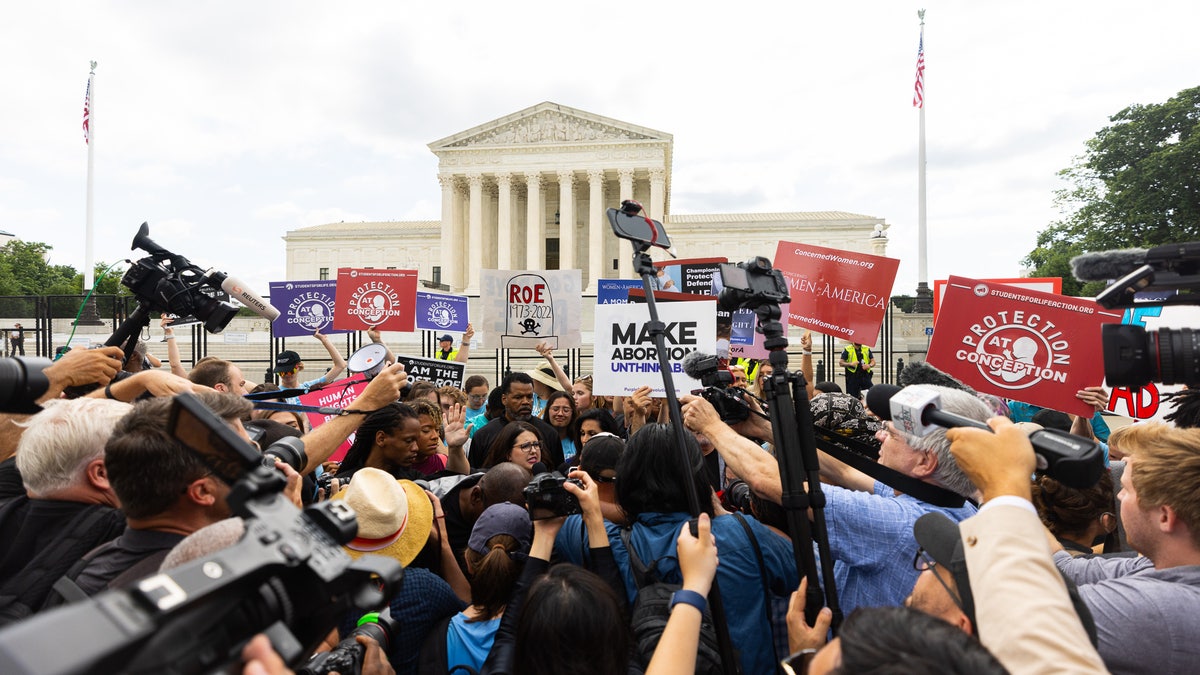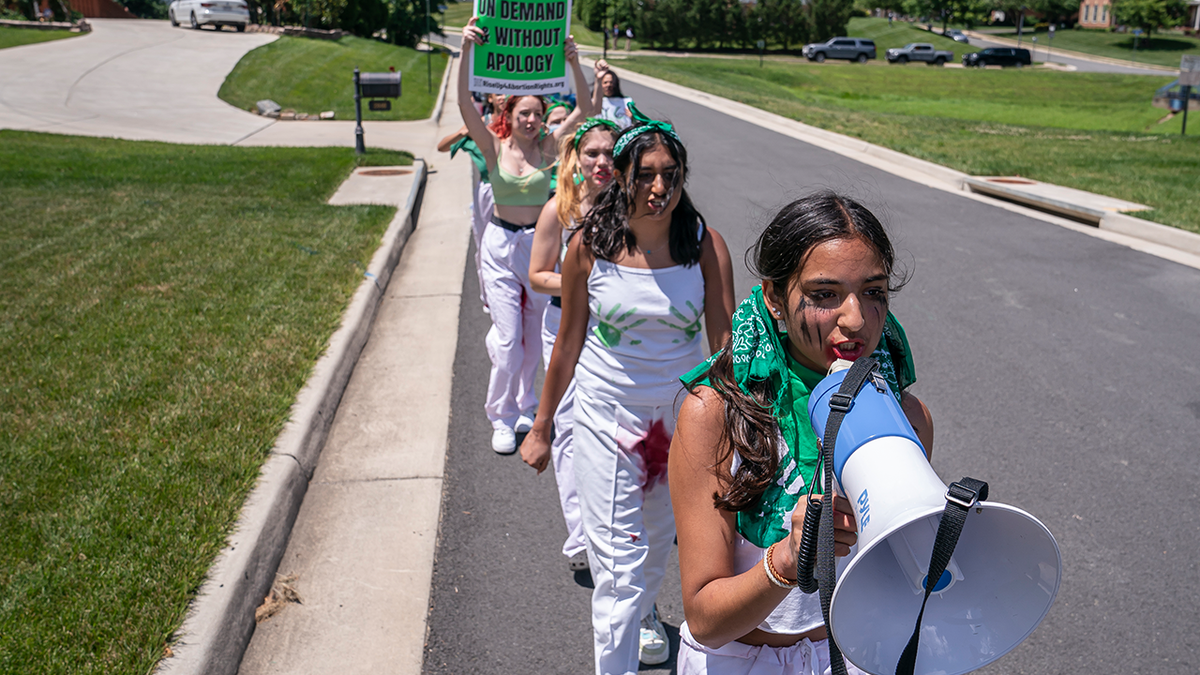Oregon gubernatorial candidate: 'Abortion is only thing Democrats want to talk about'
Oregon Republican gubernatorial candidate Christine Drazan discusses her platform and how she would address key issues in Oregon
A New York Times guest essay from pro-abortion author Mary Ziegler exposed the dangers facing the pro-abortion women in America if conservatives find success with their new pro-life strategy: recognizing the "personhood" of unborn babies.
If the law were to accept such a premise, Ziegler warned it would be harmful and punitive for woman looking to end their pregnancies.
She began her cautionary article speaking to the fraught times pro-choice women are living in "Two months after the fall of Roe v. Wade," where "abortion has been banned or severely restricted in at least 14 states."
Though it could get even worse, as the author would detail. "With so much at stake in the next few election cycles — and women’s lives hanging in the balance — both sides of this fight are strategizing their next moves."

A NY Times guest essay warns about the dangers to women that will manifest if America recognizes unborn babies as persons. (iStock)
"For the anti-abortion movement, the emerging plan is an all-out fight for fetal personhood," Ziegler claimed, further explaining, "since the 1960s, the movement’s ultimate goal has been to secure legal protections for fetuses and embryos, despite the harm that could be done to the health and livelihoods of pregnant women."
Expressing the direness of the situation in which unborn babies are recognized as human persons, she added, "The recognition of fetal personhood nationwide could mean a total ban on abortion for everyone in the United States, and if an increasingly sophisticated minority of anti-abortion extremists have their way, many more women would face criminal charges for ending their pregnancies."
Ziegler noted that the end of Roe V. Wade has emboldened pro-lifers, even "moderate" ones, to push this idea of fetal personhood swiftly. "What’s striking about this post-Roe push is the speed with which even moderate anti-abortion actors have embraced a punitive interpretation of fetal personhood, despite clear political headwinds."
She warned that even if they could never achieve a "full nationwide abortion ban, it could lead to personhood becoming more accepted at the state level and in the courts, pitting the interests of fetuses and women against each other and diminishing legal equality for women."
WE'RE TWO PRO-LIFE WOMEN WHO SAY ‘NO’ TO PROSECUTING WOMEN FOR ABORTIONS
Ziegler mentioned some legislation that has recognized unborn children as persons "Since the Dobbs v. Jackson Women’s Health Organization decision came down in late June." She stated, "a Georgia law has gone into effect defining a ‘natural person’ as ‘any human being including an unborn child’ and giving a $3,000 tax break for pregnancies after about six weeks."

Crowds outside the Supreme Court reacting to the Dobbs ruling. (Joshua Comins/Fox News)
"An Arizona statute that defines fetal rights from conception is being fought in court," the author added, before also noting that "Leading anti-abortion groups are developing plans for a federal abortion ban that could include recognition of fetal personhood."
If something like this were legalized, Ziegler fretted it would come with heavy consequences. She worried about pro-life lawmakers declaring that committing an abortion while under a nationwide ban would carry "the same legal penalty as murdering or being an accomplice to the murder of a born human being."
INDIANA BECOMES FIRST STATE IN NATION TO APPROVE NEAR-TOTAL ABORTION BAN POST ROE
The author explained why a significant, united political push from pro-lifers pursuing personhood hasn’t happened so far in the U.S., citing a variety of factors, including her claim that "New personhood proposals are often vague," that they may be too risky politically, or that a "a less conservative Supreme Court might invalidate them."
However, "given the erosion of democratic norms in the United States, the lack of support for personhood may not matter as much as it ought to," Ziegler claimed, insinuating that an authoritarian regime could protect unborn life in such a way in the near future.
Ziegler wrote, "A Republican president could lose the popular vote and impose some elements of personhood through executive order. And the Supreme Court may recognize personhood sometime down the road, no matter what voters think."
CLICK HERE TO GET THE FOX NEWS APP

Abortion-rights activists with Rise Up 4 Abortion Rights chant after marching to the home of Supreme Court Justice Amy Coney Barrett on June 18, 2022 in Falls Church, Virginia. According to the Rise Up 4 Abortion Rights group, the dolls represent forced births. (Photo by Nathan Howard/Getty Images)


